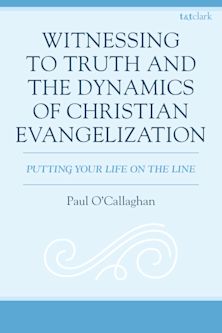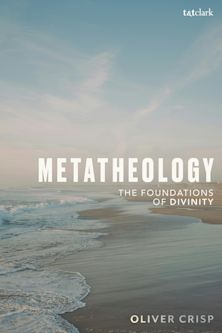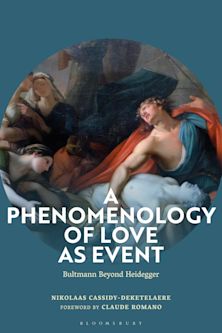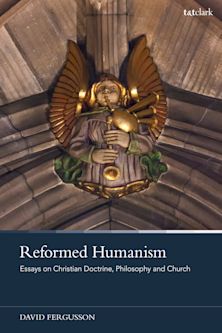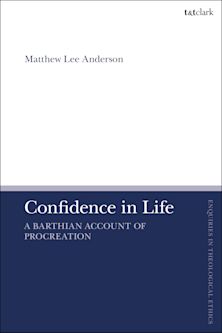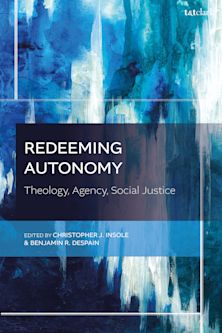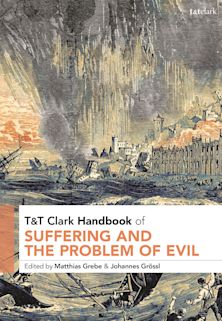- Home
- ACADEMIC
- Theology
- Philosophical Theology
- Heidegger and Theology
This product is usually dispatched within 10-14 days
- Delivery and returns info
-
Free UK delivery on orders £30 or over
You must sign in to add this item to your wishlist. Please sign in or create an account
Description
Martin Heidegger is the 20th century theology philosopher with the greatest importance to theology. A cradle Catholic originally intended for the priesthood, Heidegger's studies in philosophy led him to turn first to Protestantism and then to an atheistic philosophical method. Nevertheless, his writings remained deeply indebted to theological themes and sources, and the question of the nature of his relationship with theology has been a subject of discussion ever since.
This book offers theologians and philosophers alike a clear account of the directions and the potential of this debate. It explains Heidegger's key ideas, describes their development and analyses the role of theology in his major writings, including his lectures during the National Socialist era. It reviews the reception of Heidegger's thought both by theologians in his own day (particularly in Barth and his school as well as neo-Scholasticism) and more recently (particularly in French phenomenology), and concludes by offering directions for theology's possible future engagement with Heidegger's work.
Table of Contents
Abbreviations
Introduction
1 Heidegger ' s Catholicism (1889 – 1915)
2 Heidegger ' s Protestantism (1916 – 1921)
3 The emancipation of philosophy (1921 – 1929)
4 Theology in Being and Time
5 Heidegger between Hitler and Hölderlin (1930 – 1935)
6 The later Heidegger (1935 and beyond)
7 Heidegger among theologians
8 Heidegger in theology
Bibliography
Index
Product details
| Published | 19 Jun 2014 |
|---|---|
| Format | Paperback |
| Edition | 1st |
| Extent | 256 |
| ISBN | 9780567033765 |
| Imprint | T&T Clark |
| Dimensions | 216 x 138 mm |
| Publisher | Bloomsbury Publishing |
About the contributors
Reviews
-
Heidegger and Theology is aimed at 'students of theology who would like to know more about Heidegger' and 'students of Heidegger first encountering his engagement with theology'. Many other readers appreciate the precision with which Wolfe teases out the complex and interrelated biographical and intellectual dimensions of Heidgger's life and work.
The Tablet
-
This latest addition to T&T Clark's excellent Philosophy and Theology series is very welcome. Judith Wolfe acknowledges that Heidegger's language is notoriously difficult to translate - and, we might add, to understand. But she brings admirable clarity to the task she has set herself, i.e. to introduce students of theology to Heidegger, and students of Heidegger to his engagement with theology.
John Saxbee, Church Times
-
When a slim, winsomely-written introductory volume manages accessibly to survey many of the most important signposts across Heidegger's path, does so in a way that both excavates new sources and puts them to constructive use, is historically-informed but futurally-minded and generous but critical -- that's an achievement … Heidegger's theologically-minded readership is bound to find this boon of resources exciting.
Matthew C. Halteman, Calvin College, Notre Dame Philosophical Reviews
-
[A] strikingly erudite, meticulously researched, and penetrating book ... I highly recommend it, especially for theologians ambivalent to Heidegger.
The Heythrop Journal
-
The most helpful thing on Heidegger I've come across. Lucid, illuminating and comprehensive, it traces Heidegger's changing relationship to theology over the course of his life, and concludes with an overview of 20th and 21st century theological responses to Heidegger. Wolfe brings to bear both an immersion in the source material, some of it newly available and not yet translated, and an unusual clarity of mind. The result is a book which will be useful to both theologians and philosophers, and to students and advanced scholars alike. It is a pleasure to read.
Karen Kilby, University of Durham, uk
-
This is the best kind of introduction: drawing on substantial scholarship in an accessible manner, and organized around a theme – the eschatological dimension of Heidegger's thought – that illuminates every phase of its subject's intellectual career as well as revealing one aspect of its underlying unity.
Stephen Mulhall, Oxford University, UK

ONLINE RESOURCES
Bloomsbury Collections
This book is available on Bloomsbury Collections where your library has access.














